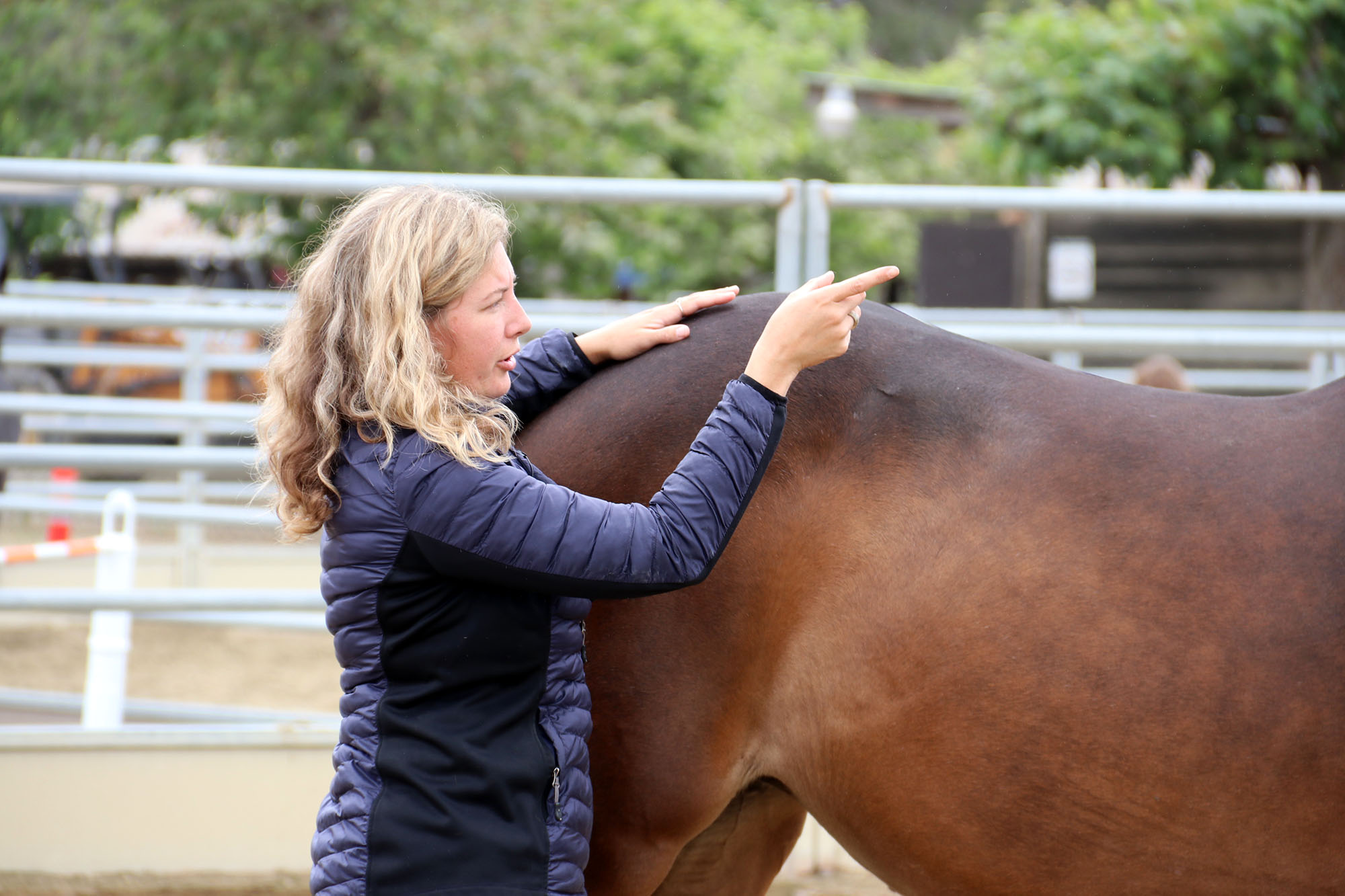
If people seeking mental health care don’t want to simply talk in a room with a therapist, they can instead try to lead a horse around an outdoor obstacle course while discussing their issues.
The J.F. Shea Therapeutic Center is expanding the range of equine therapy services that they offer to include sessions for people diagnosed with depression, anxiety, grief, bipolar disorder, attention deficit disorder, and other conditions.
Non-therapeutic horse-assisted learning is also available for people, couples, families, and business groups to build life skills and team dynamics.
The horse-involved sessions take place in a round pen on the Shea Center grounds and can help clients identify problems and behavioral patterns to work on. For instance, learning to guide a horse—particularly if it becomes leery or uncooperative—around a pole can teach clients assertiveness and communication skills.
The program was created by Shea Center therapist Leeana Rice, who leads the nonprofit’s mental health care services.
“What that’s done is it gives clients the opportunity to learn about themselves and their experience as it relates to another being, which really opens up the door for people to grow and develop and not feel judged while they do it,” Rice said.
The open-air setting is one people can feel particularly comfortable with on the heels of the COVID-19 pandemic, she said.
“It’s been a pretty wonderful experience to start something new, yet so effective,” Rice said.
Equine therapy differs from traditional therapy, as clients can project things they struggle with onto something else “safely and effectively,” she said.
“In a traditional therapeutic setting, often times people will really struggle with having an issue but also having a lot of shame and embarrassment about the issue,” Rice said. “They don’t want to talk about it and bring it to light because of how it makes them feel about themselves.”
“With equine therapy, what I can do is set things up for clients to be able to almost project that onto a horse or obstacles in the arena that we set up, and that gives them the opportunity to have a degree of separation from that guilt and shame and really uncomfortable feeling,” she added.
The expanded mental care offerings add to the Shea Center’s current mission of helping disabled people through horse riding and care sessions. Equine sessions at the Shea Center help clients dealing with cerebral palsy, autism, and other conditions.
With Rice’s program, she walks with the client and horse during arena sessions. During the initial session, Rice talks with the client about what’s happening in their life and struggles and issues going on.
“At the end of that, we talk about what mental health goals they want,” she said. “Based on those goals, I pick a horse the next week with them, because the horse partner is really important. After that, the sessions are all going to be unmounted, at liberty. At liberty means the horse is not really connected to anything.”
Rice will also notice and point to tendencies during sessions, askng clients if such habits translate to and affect their daily lives.
“It becomes really helpful for them to learn how to work on whatever they’re struggling with, because they’re seeing that issue play out in real life with a thousand-pound animal,” Rice said. “You have to figure out how to identify the issue and then actually put in some practical application to make it work.”
